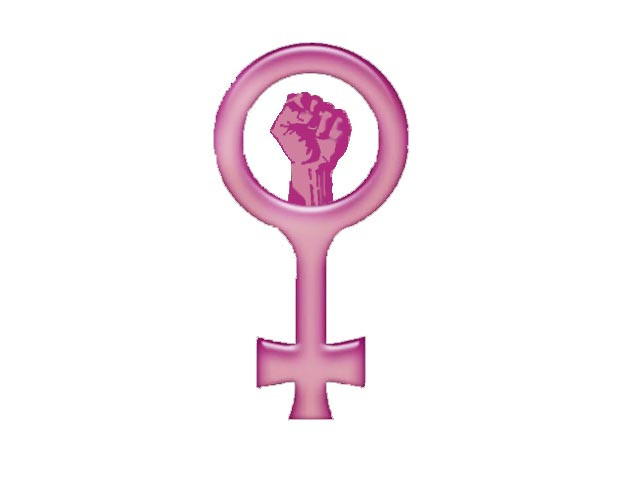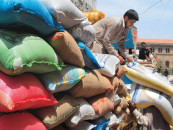Working on behalf of working women
NGO workers speak to women about taking control of their finances and property.

The Aurat foundation, USAID and Sanj Development Foundation organised a two-day workshop for home-based female workers starting this Sunday.
One of the aims of the workshop involves familiarising women with basic information on how to access governmental and non-governmental programmes for economic consolidation. The NGO workers also said that they hoped that the women participating in the workshop left the experience more aware about their rights and civil liberties.
“We want to train women into how to start and run a business from home as well as to ensure they get their due share in property and other matters. Financial independence for women is a key factor in building their future,” said a speaker at the workshop, Razia Sultana.
A total of 25 NGO workers conducted the workshop and scores of women in the area participated in the free programme. Sanj Development Foundation executive director S Ghanjera, addressed the workshop participants and said that the Sanj foundation was struggling to give priority assistance to flood victims and to women from flood zones.
“The only solution is for women to take their fate into their own hands.
They need to be made capable of starting their own small businesses and handling their own finances,” he said. Ghanjera said that old patriarchal frameworks needed to be dismantled. “Acute poverty has brought more and more women into the workforce and these women need to know their rights. They need to be able to preserve their wealth and know that this isn’t only a man’s domain,” he said.
Women in Mianwali presently have no access to governmental and non-governmental programmes and there are no facilities to prepare relevant documents in this regard. “Depriving women of proprietary rights is against the country’s constitution and human rights international declarations. One of the purposes of this workshop is to inform them how to acquire such papers,” he said.
Workshop curator Ziaul Rahim said “Rural women work with men in the field as well as at home. Why then, is there so much discrimination?” Rahim said that his talk focused on helping the women register their personal property and to take care of their documentation. “Many women give up their claim to property and inheritance and we are trying to ensure that the participants get their share.
The NGOs will try and help the women get their documents notarised. They need to know how much they have and what they can do with it. This is their right,” he said.
The Benazir Income Support Program (BISP) representative informed the workshop about a poverty score card, a Waseela Haq program, smart card and other schemes that are presently in the works to help women gain more financial independence. “Women need to know that they do not need to be financially dependent on men.
They can take charge of their lives and we are trying to put in place schemes whereby women are in charge of handling their finances. Micro-finance schemes such as those started by the Grameen Bank in Bangladesh give women the impetus to provide for themselves and their children, we are trying to push this idea,” said BISP representative Salma Qazim.
National Data Registration Authority (Nadra) assistant manager Gulraize gave details about the process for women to acquire a CNIC, birth certificates for their children, disability cards and duplicate ID cards. “Many of these women don’t have ID cards and some of them have never ventured out of their villages to go to a government office.
This needs to change. Without a CNIC, they simply don’t exist,” he said. Gulraize also spoke about several programmes being run in the province to aid women. A group session was also held, where the women attending the workshops spoke about their concerns and the speakers addressed their problems.
Published in The Express Tribune, April 25th, 2011.



















COMMENTS
Comments are moderated and generally will be posted if they are on-topic and not abusive.
For more information, please see our Comments FAQ